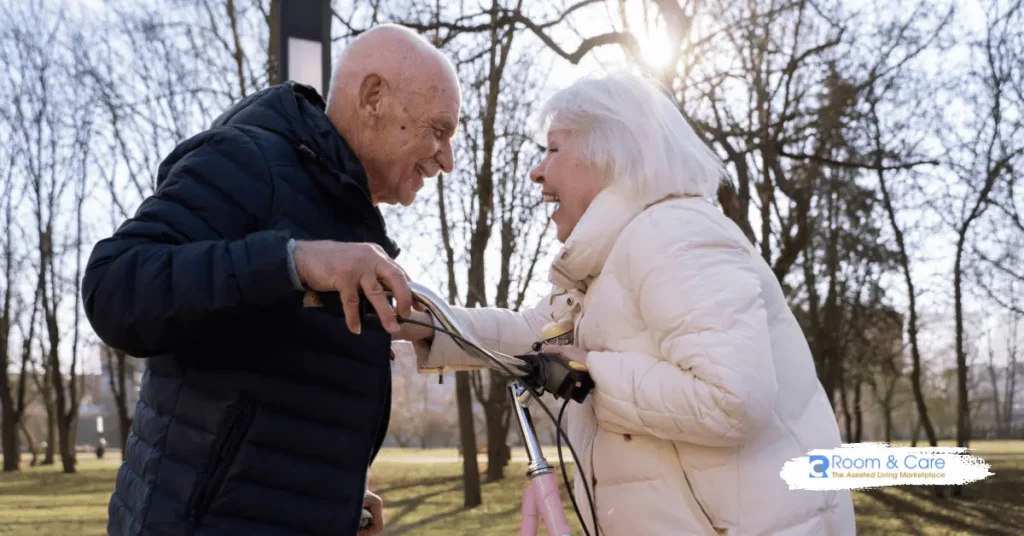

In a world where time often feels rushed, the values of kindness and empathy become more important than ever. These two qualities form the foundation of human connection, trust, and understanding. Whether it’s offering a warm smile, lending a listening ear, or extending a helping hand, kindness and empathy are the keys to creating meaningful relationships—especially in senior care environments like Adult Family Homes, Assisted Living Facilities, and Independent Living Communities.
For families seeking the right care community for their loved ones, kindness and empathy are not just qualities to appreciate; they are essential factors that ensure seniors live with dignity, comfort, and joy. In this article, we’ll explore the importance of kindness and empathy, how they influence senior care settings, and practical tips for identifying care communities where these values thrive.
Kindness and empathy are often used interchangeably, but they have distinct meanings that complement one another. Kindness refers to intentional actions that bring comfort, help, or joy to others without expecting anything in return. Empathy, on the other hand, is the ability to understand and share someone else’s emotions, seeing the world through their eyes.
When applied to senior care, these values create an environment of trust and safety. Caregivers who exhibit empathy understand the emotional and physical struggles seniors face, while kindness motivates them to act compassionately to ease those struggles. Together, these qualities transform senior care facilities from places of residence to homes where seniors feel valued, heard, and respected.
When families search for senior care options like Adult Family Homes, Assisted Living Facilities, or Independent Living Communities, they seek more than clean rooms and structured routines. They want assurance that their loved ones will be treated with compassion and dignity every day. Here’s why kindness and empathy are non-negotiable in care communities:
Moving into a senior care facility can be emotionally challenging for seniors. It often means leaving behind familiar environments, routines, and sometimes, loved ones. Caregivers who approach residents with empathy acknowledge these difficulties and offer support through kind words, gentle encouragement, and patient listening. This helps seniors feel understood and eases the emotional weight of transition.
Kindness and empathy directly impact a resident’s emotional well-being. Studies show that seniors who experience regular social connection and emotional care report better overall happiness and reduced feelings of loneliness. In Assisted Living Facilities, simple acts such as remembering a resident’s birthday, engaging in conversation, or participating in shared activities create an atmosphere of inclusion and warmth.
Empathetic care is personalized care. When caregivers take the time to understand individual preferences, health concerns, and life stories, they can deliver care that aligns with a senior’s needs. For example, a caregiver might notice a resident feeling anxious before a medical appointment and take extra time to reassure them, making a world of difference to their comfort.

The decision to move a loved one into a senior care community is deeply personal. Here are some key considerations to ensure the facility you choose prioritizes kindness and empathy:
When visiting a care home or facility, pay close attention to how staff interact with residents:
Are their tones warm, patient, and encouraging?
Do they address residents by name, acknowledging their individuality?
Are caregivers actively listening to residents’ concerns and responding with understanding?
These observations can reveal whether empathy is part of the facility’s culture.
Facilities that prioritize kindness and empathy often train staff to handle emotional and psychological challenges faced by seniors. Ask about the training programs for caregivers:
How are they taught to recognize and respond to signs of loneliness, depression, or anxiety?
Are staff encouraged to form meaningful relationships with residents?
A facility’s atmosphere reflects its values. Look for a place where:
Residents are smiling, interacting, and participating in activities.
Staff appear engaged and genuinely invested in their work.
The environment feels warm, welcoming, and home-like rather than clinical or impersonal.
Talk to families of current or former residents. Their experiences can provide insight into how well the facility practices kindness and empathy. Online reviews and testimonials are also valuable resources when researching care options.
Adult Family Homes provide a smaller, more intimate care setting, often with just a handful of residents. This smaller scale allows caregivers to build strong, personal relationships with residents, ensuring that kindness and empathy are part of everyday interactions.
For example:
Caregivers can tailor daily routines to match each resident’s preferences, such as preferred meal times or favorite hobbies.
Staff have more time to engage in meaningful conversations, creating a family-like atmosphere where seniors feel truly cared for.
Adult Family Homes are an excellent option for families seeking compassionate, one-on-one care for their loved ones.
In Assisted Living Facilities, residents often require help with daily activities while maintaining as much independence as possible. Empathy plays a key role in balancing these needs. Caregivers who practice empathy:
Respect residents’ desire for autonomy by involving them in decisions about their care.
Provide encouragement and emotional support to help residents overcome challenges, such as health setbacks or changes in mobility.
This approach ensures that seniors feel empowered, not dependent, while receiving the support they need.
Independent Living Communities cater to active seniors who enjoy social interaction and independence. Empathy here focuses on building connections and fostering emotional well-being:
Staff organize group activities and events to encourage socialization.
Residents are encouraged to share their interests, life stories, and talents, fostering a sense of purpose and belonging.
Kindness and empathy create a vibrant community where seniors can live independently while feeling supported and valued.
Kindness and empathy aren’t limited to senior care—they’re values we can all cultivate. Here are simple ways to integrate these qualities into your daily life:
Listen Actively: Give others your full attention and try to understand their perspective.
Offer Small Gestures: A smile, kind words, or holding a door open can brighten someone’s day.
Be Patient: Whether with a family member, friend, or stranger, patience demonstrates understanding and respect.
Check In: Reach out to loved ones, especially seniors, to let them know you care.
Lead By Example: Show others how small acts of kindness can create meaningful change.
When practiced consistently, these actions foster stronger relationships and make communities more compassionate.

In senior care, kindness and empathy aren’t optional—they are essential for creating environments where seniors feel valued, respected, and supported. Whether in Adult Family Homes, Assisted Living Facilities, or Independent Living Communities, these qualities transform care spaces into true homes where seniors can thrive.
At Room and Care, we believe in connecting families with senior care communities that prioritize compassion and personalized care. Our platform offers access to the best Adult Family Homes, Assisted Living Facilities, and Independent Living Communities with no referral fees or middlemen, ensuring families find the right fit for their loved ones at lower costs.
By embracing these values in our lives and in our decisions, we build a world where seniors receive the care, love, and respect they truly deserve.